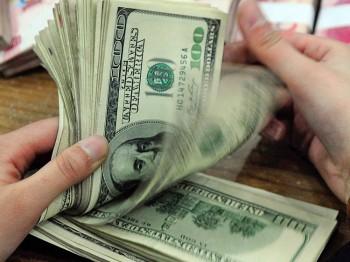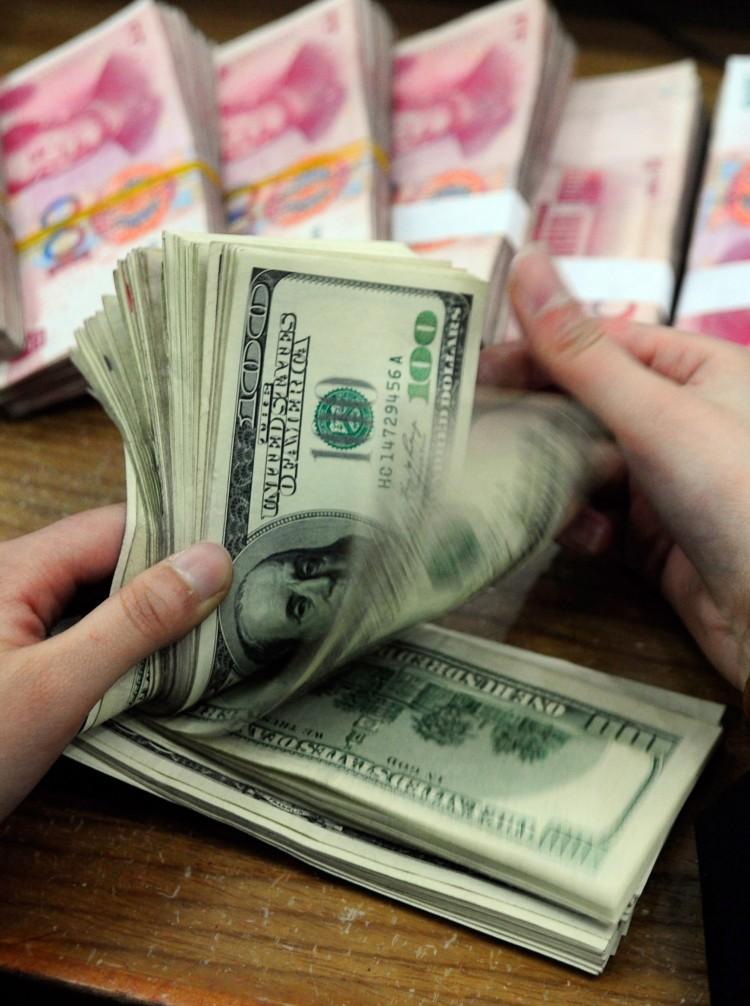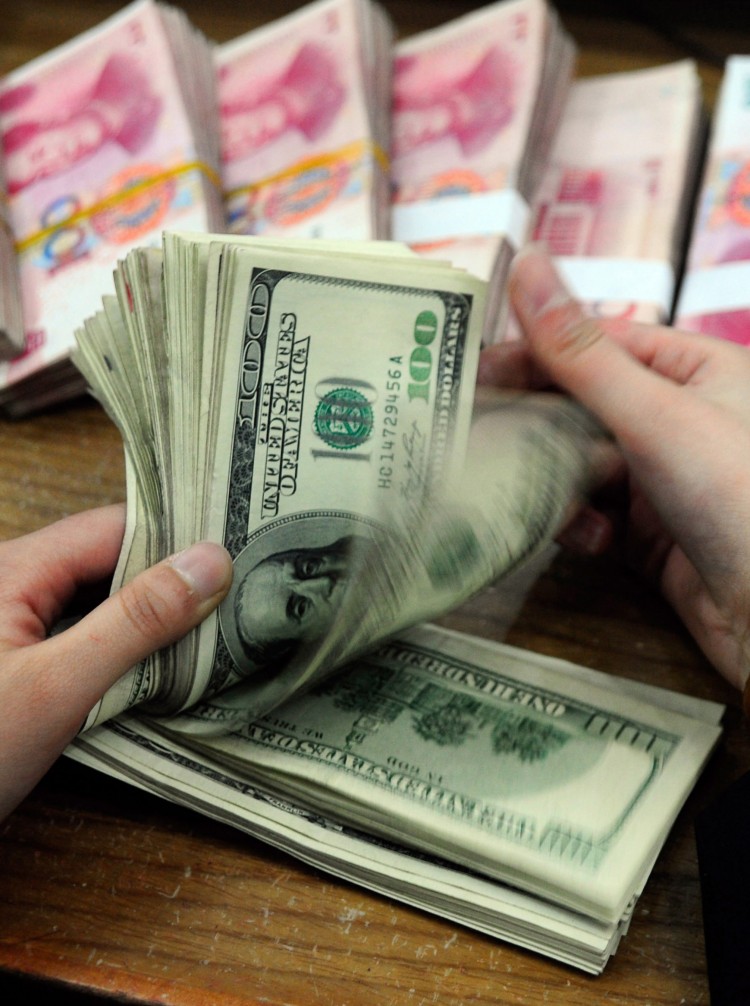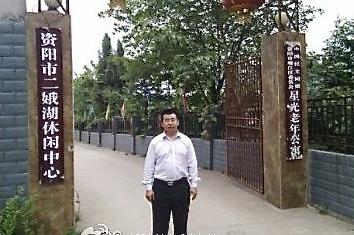Massive foreign exchange reserves maintained by the Chinese central bank are causing the bank to incur large amounts of debt while feeding China’s out of control inflation.
In a June 17 article by Caijing.com.cn, the website of leading business magazine Caijing, reporter Xu Bin calls attention to the high debt amassed by the People’s Bank of China (PBOC), China’s central bank, alleging that the bank’s financial losses are “the biggest threat for the Chinese economy.”
According to official statistics, by April, the PBOC had accumulated total liabilities of 27 trillion yuan (approximately US$4.2 trillion), while its net worth was only 21.9 billion yuan (approximately US$3.4 billion). Its liabilities are 1,235 times its net worth. “What other business entity on earth could hold so much debt?” Xu asked.
In comparison, the U.S. Federal Reserve’s liabilities are 53 times its net worth, with $2.9 trillion in liabilities and $53 billion in net worth as of June 22.
The debt has been raised primarily to hide the true value of its foreign exchange reserves. On the bank’s April balance sheet, 22 trillion yuan in foreign exchange accounted for over 80 percent of its total assets.
Xu suggested that in some respects, the central bank handles the currencies like a hedge fund. “After all, the yuan issued domestically is the central bank’s debt, and the foreign reserves are owed to it by its foreign creditors... From this angle, China’s central bank is operating the world’s largest hedge fund.”
Hedge funds are privately managed investment portfolios that aim to secure positive return on investment by diversifying investment options. Unlike traditional funds that invest only in assets whose values are likely to increase, hedge funds try to make profit also from assets whose values are expected to decrease by selling borrowed assets and later repaying the lender at lower prices when the assets’ market value decreases.
If the central bank is thought of as a hedge fund, the logic behind the PBOC’s borrowing yuan and lending in U.S. dollars is based on the PBOC’s understanding of market forces, and China’s Central Bank is acting as if the value of the yuan will decrease and conversely, the dollar value increase, Xu said.
But, such an assumption cannot be further from the reality. Since 2005, the yuan to dollar exchange rate has dropped from 8.27 to slightly under 6.5.
“If it was a hedge fund in a real market economy, how long do you think it could survive with such an investment strategy?” Xu said. “The PBOC is the world’s most incompetent hedge fund.”
High Costs of Foreign Exchange Reserves
The Chinese authorities seem to be well aware of the risks and causes of the large forex (foreign exchange) reserves. Discussions over the risks started at least six years ago, and even China’s state-run media admitted the high-speed growth in forex reserves is a result of lagging domestic demand and the economy’s over reliance on exports. But effective measures to address this are still missing. At this point, China has accumulated the world’s largest forex reserves, which topped $3.04 trillion at the end of March.
Maintaining such massive foreign exchange reserves costs dearly. According to a report in the First Financial Daily, the costs of the funds outstanding for foreign exchange between 2003 and 2010 add up to 1.08 trillion yuan (approximately US$167 billion).
The costs include the cumulative interest expenses for the central bank bills issued between 2003 and 2010, and the interest for part of the incremental deposit reserves that occurred during the same period, the report says.
Both costs continue to surge in 2011 as China has expanded its forex reserves at an increasing rate. In May, the funds outstanding for foreign exchange stood at 376.4 billion yuan (approximately US$58 billion), making May the eighth month in a row when funds outstanding for foreign exchange increased by more than 300 billion yuan.
In order to offset the impact of soaring funds outstanding on liquidity, as well as head off criticism about its currency manipulation at the Group of 20 (G-20) meetings in France earlier this month, on June 20 the PBOC raised the deposit reserve ratio for the sixth time this year, bringing it to a record 21.5 percent. In addition, the PBOC is planning to resume its issuance of long-term three-year bills.
Continued on the next page ...
Currency Over Issuance and Inflation
Chinese economist Zhang Bin told the First Financial Daily that the central bank covers these costs by overissuing currency.
“The central bank pays the hedging costs in two ways: currency issuance and new bonds issuance,” Zhang says. “[Either way it consumes] the public’s money.”
The currency overissuance has been increasingly discussed in recent years. Last October, Chinese economist Jin Yanshi said during a financial forum that China’s 2009 GDP increased 93.4 times since 1979, while the 2010 broad money (M2) supply increased 814 times since 1985.
M2 is a measure of a country’s money supply (the money available in a country at a point in time), which includes M1 (called narrow money), small time deposits, and money market funds with more than 24-hour maturity. However, the definition of M1, M2, and so on, are not the same for every country.
Former PBOC Vice Gov. Wu Xiaoling also admitted that the authorities had been overissuing currency to maintain high economic growth in the past few decades.
The inevitable byproduct of overissuance is inflation. Official statistics indicate the May consumer price index rose by 5.5 percent over the same month last year, higher than most previous estimations. Food prices, in particular, surged by 11.7 percent. However, Chinese Academy of Social Sciences researcher Xu Qiyuan said the true CPI over the past five years is 7 percent higher than official statistics.
Locking Exchange Rates
The PBOC’s focus on maintaining a stable yuan to dollar exchange rate is another major cause for inflation, according to Peking University head economics professor Zhou Qiren.
In a blog series, Zhou said that since the U.S. dollar has been devaluing, purchasing it with large amounts of base money (including currency issuance and deposits) at a constant rate will inevitably force the yuan to devalue at the same pace, thus undermining the stability of the yuan’s value, he said.
“When the U.S. dollar depreciates, global dollar holders together share the consequences,” Zhou said. “(But) when the yuan depreciates, Chinese are the only victims.”
The PBOC should not be assigned the responsibility for guarding the yuan to dollar rate, and should instead focus on stabilizing the yuan’s value, Zhou suggested.
Zhou criticized the Chinese authorities for always using base money to control exchange rates. He urged the authorities to put the PBOC’s debt under public supervision and recommended the PBOC replace public money with financial resources such as government revenue, bonds, and state assets when purchasing foreign currencies.
“If the government does not purchase goods with real money, and violates the most basic laws of a market economy, distortions and losses will definitely occur,” Zhou said.






